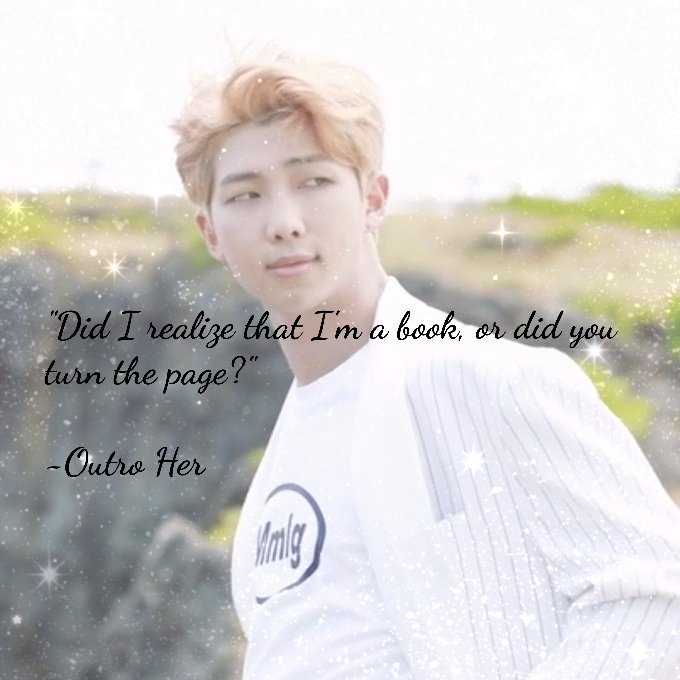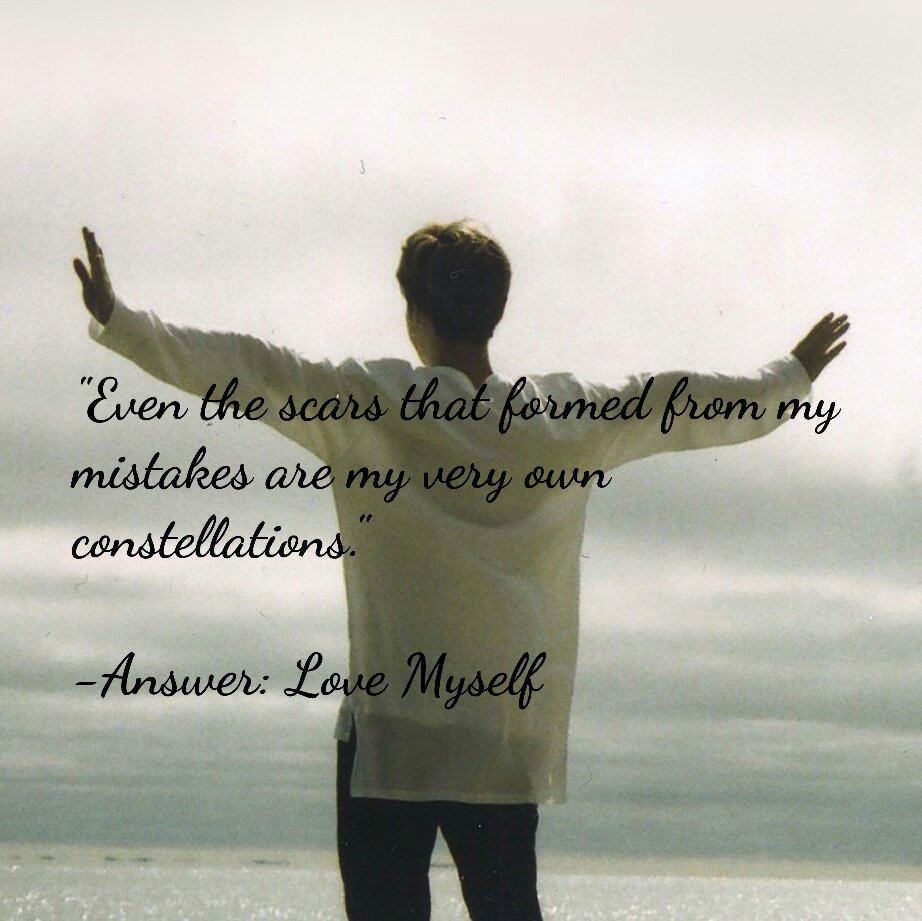Hello! This was not originally planned, but I found some old notes in my notebook and it was too good of an opportunity to pass up, so I give to you a thread of my analysis of the @BTS_twt LY trilogy, and its connections to psychological theories of the sense of self.
Enjoy! https://abs.twimg.com/emoji/v2/... draggable="false" alt="✨" title="Sparkles" aria-label="Emoji: Sparkles">
https://abs.twimg.com/emoji/v2/... draggable="false" alt="✨" title="Sparkles" aria-label="Emoji: Sparkles">
Enjoy!
Firstly, when I say sense of self, what do I mean? Let& #39;s split it up, shall we?
A = Affect
Feelings toward ourselves or & #39;self-esteem& #39;
B = Behavior
How we behave and what it says about us
C = Cognitions
Ideas about who we are
This is what we call the & #39;ABCs& #39; of the self.
A = Affect
Feelings toward ourselves or & #39;self-esteem& #39;
B = Behavior
How we behave and what it says about us
C = Cognitions
Ideas about who we are
This is what we call the & #39;ABCs& #39; of the self.
A lot of what makes up our sense of self is something we call & #39;self-assessment& #39;, which is the desire to learn truth about one& #39;s self. The LY trilogy is definitely a reflection of that, as you can see through the storyline, the boys struggle with their identity and who they are.
We, as fans, have gone through that journey with them, and it was only after I started 3rd year and went to a lecture on this topic that it finally opened my eyes. So in this thread I will be linking some theories about sense of self (SOS for short) to each part of the trilogy.
Chapter 1: Her
Take a look at this sentence:
"I am me."
What can you infer from it? If you look closely, you& #39;ll notice how the self is both the subject AND the object. We are the same. When it comes to judging ourselves, in a sense, we are both the book and the reader.
"I am me."
What can you infer from it? If you look closely, you& #39;ll notice how the self is both the subject AND the object. We are the same. When it comes to judging ourselves, in a sense, we are both the book and the reader.
Judging our own identity is essentially just looking into the mirror. While we ARE perceiving something, the object of perception is still our own reflection. LY Her was a time where BTS became that book, their pages on display for everyone to see.
But how authentic are we? How true are we to the pages of our book? According to research, people tend to feel the most authentic when having fun. On the flip side, we are the least authentic in a difficult situation or when we are being judged. And this is how the story starts.
The only way to know one& #39;s self is through self-awareness. This is the act of thinking of one& #39;s self. There are 2 ways to have self-awareness.
1: having a private (inner) view of ourselves
2: having a public view/what others see
These 2 CANNOT coexist at the same time.
1: having a private (inner) view of ourselves
2: having a public view/what others see
These 2 CANNOT coexist at the same time.
Self-awareness is also very self-evaluative. When comparing present behavior to internal standards, you have 1 of 2 reactions.
1. Pleasant
-improves introspection
-increases moral behavior
2. Aversive
-intensifies emotions
-motivated to escape self through destructive practices
1. Pleasant
-improves introspection
-increases moral behavior
2. Aversive
-intensifies emotions
-motivated to escape self through destructive practices
The question is, which did BTS do? Looking at the diagram below, you can see the process of what people go through when confronted with unpleasant self-discrepancies. For BTS, I believe that during the Her arc, they opted for the "Change!" option.
In order to change one& #39;s self, you need to have awareness of your goals and beliefs and also change your behavior in accord to your personal needs. In LY Her, the goal was to be loved. And they were willing to change their entire identity to achieve this.
But were they genuine? Yes. Did they change their identity? They did. But the key thing is that because they were loved, they were happy. And happiness evokes authenticity. Therefore, during LY Her, BTS was genuine.
Songs like Euphoria, Serendipity, and DNA showcase this happiness. You can see that being loved triggers a positive emotional response and confirms what they believe about their own identity. This is called & #39;self-verification& #39;.
But good things don& #39;t always last...
But good things don& #39;t always last...
Chapter 2: Tear
Remember this diagram I brought up earlier? If Her was the "Change!" option, then Tear is "Escape!" At this point, BTS is now aware of this false identity that they& #39;ve created, but their instinct is to withdraw from their self-awareness and try to maintain their fake self.
This is the point in the storyline where they have now identified the mask they have put up. It was briefly mentioned in Her, where Suga says "I can never take off this mask, because within it, I am not the guy you know." In order to be loved, they have to escape self-awareness.
Seesaw was also a good song that depicted the development (and withdrawal) of self-awareness. As they got further into this toxic relationship, it became harder to ignore their true self, but they continued to do so for the sake of love. It was a poisonous cycle.
But there is one more thing that plays an important role in this, and that& #39;s self-esteem (SE for short). SE is the confidence in one& #39;s worth/abilities. In Her, you can see very high SE, because they are valued and accepted. In Tear, SE is low, because their true self is rejected.
Songs like TTU really show this low SE with heartbreaking lyrics such as "I must hide because I am ugly" and "I can& #39;t show you a run-down part of myself, I wear a mask again to go see you". The hatred they have for their true self emphasizes their desperation to change.
Yet at the same time, because of this back-and-forth need to change and escape, it causes a conflict within them. They& #39;ve changed so many things about themselves that they& #39;ve lost sight of their true identity and they don& #39;t know who they are anymore. So what& #39;s the solution?
Chapter 3: Answer
The journey through Her and Tear brought us back to the crossroad again, but this time, BTS don& #39;t choose to change or to escape. Rather, they create a NEW option for themselves, and that option is & #39;Accept!& #39;
Self-acceptance (SA) is a key factor for emotional and psychological well-being. In one study, when assessing people who had serious mental health problems in comparison with the GP, they had lower SE and SA, as well as higher levels of anxiety and depression.
According to one article, "an important aspect of SA is the ability and willingness to let others see your true self". So the only thing for them to do was remove the mask and face themselves in the mirror, no matter how good or bad it was.
The final arc in the trilogy was such a huge milestone and each song in the last part of the tracklist showed their growth in character. And most importantly, they decided to embrace themselves with all their mistakes.
The self is layered, multi-faced, and context-dependent. Our identities are made of schemas. Schemas are cognitive structures that represent the knowledge about ourselves. Within this are networks of both good and bad traits.
While LY Her highlighted the good and LY Tear highlighted the bad, Answer not only chose to highlight them both, but EMBRACE them as well. Your achievements and your mistakes are still a part of you, and in Answer, they accepted every part of their identity.
So what have we learned? We& #39;ve learned how the sense of self operates in many different ways and that how we view ourselves affects our behavior and our coping mechanisms. Our choices affect our emotional well-being, so we have to choose wisely when assessing ourself.
But most importantly, we learned that self-acceptance is key! Above everything, understand that you are only human. Slow down, take it easy, and don& #39;t forget to love yourself.
This has been my psychological analysis of the LY trilogy and the sense of self.
Until next time!
This has been my psychological analysis of the LY trilogy and the sense of self.
Until next time!

 Read on Twitter
Read on Twitter





